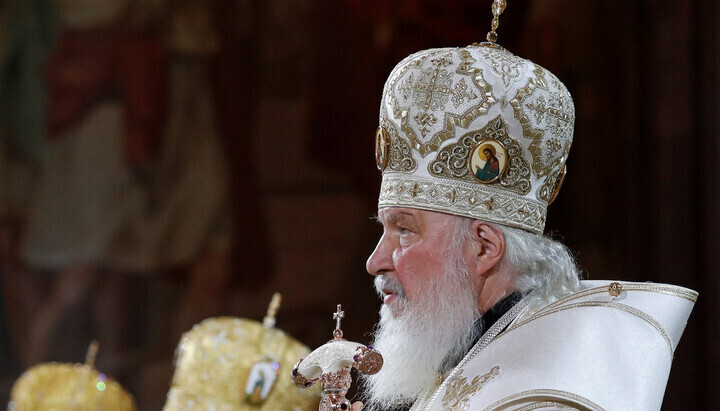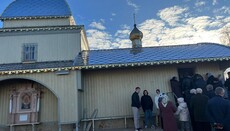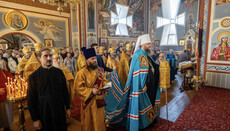UOC hierarch: Patriarch Bartholomew is increasingly departing from Logos

Metropolitan Varsonofy believes that the "I-don’t-care" approach of the head of Phanar to the unity of the Church is one of the evidences of his spiritual degradation.
Patriarch Bartholomew of Constantinople is gradually becoming a man who is increasingly moving away from the Gospel and the teachings of Christ. The ruling bishop of the Vinnytsia diocese of the Ukrainian Orthodox Church, Metropolitan Varsonofy (Stoliar)of Vinnytsia and Bar, wrote about this in an article "Patriarch Bartholomew and three signs of his pride", published on the UOJ website.
The hierarch recalled the recent statement of Patriarch Bartholomew that he "does not care" about the severed communion with the ROC. Referring to experts in the Greek language, the metropolitan explained that the words used by the "patriarch of the Great Church of Constantinople" are "close to rudeness, and their translation as ‘I don't care’ is quite soft."
The "theatrical pause of the head of Phanar" as he was uttering this phrase is also indicative, as well as the laughter of the Greek audience, the UOC bishop noted. In his opinion, the patriarch seems to have stopped literally one step away from using obscene language.
"This time he was able to stop. However, it is possible that down the road he will say something 'more' without restraint. Why do we think so? Because we have to state with big regret that once one of the most authoritative patriarchs of the world, the hierarch of the Church of Christ is gradually becoming a person who is increasingly departing from the Gospel and the teachings of Christ. This can be evidenced not only by his "I-don’t-care" response to the issue of the unity of the Church, but also by many other examples," said Metropolitan Varsonofy.
Earlier, the UOC noted that the “I don’t care” words of the head of Phanar regarding the exclusion of his name from the diptychs indicate that he "does not care" for the unity of the Church, while granting the Tomos to the OCU was based “on the phrase he pronounced rather than the canons of the Church."





